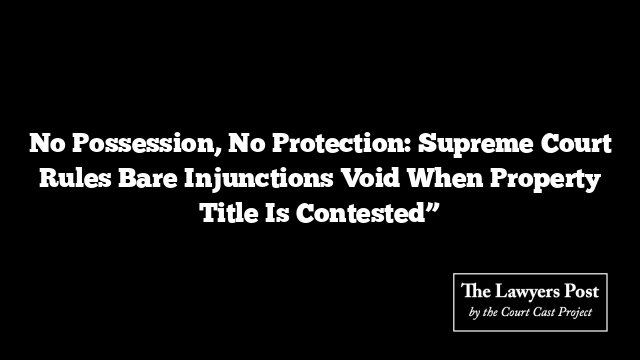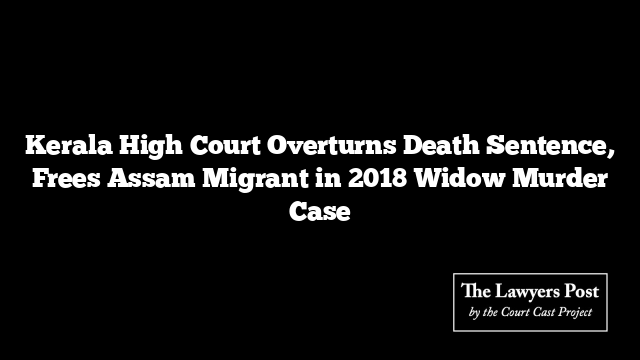The Supreme Court has drawn a clear boundary line around property disputes — one cannot simply seek an injunction when not in possession and when ownership itself stands on shaky ground.
A Bench of Justices Ahsanuddin Amanullah and K. Vinod Chandran clarified that a plaintiff who neither holds the property nor an undisputed title cannot invoke a simple injunction to block interference. In such circumstances, the only proper path is a declaratory suit — one that seeks formal recognition of ownership, along with recovery of possession if required.
The case stemmed from a long-standing feud among three siblings — D. Rajammal, Munuswamy (since deceased, represented by his legal heirs), and Govindarajan — over a piece of family land. Rajammal relied on a Will allegedly executed by their father, Rangaswamy Naidu, claiming the property as his self-acquired estate, divided equally between her and Govindarajan. Munuswamy, however, insisted the land was ancestral, asserting his right as a co-owner under a 1983 family arrangement.
The trial court initially sided with Rajammal, accepting the Will as genuine and issuing injunctions against the defendant to prevent alienation or disturbance. But the First Appellate Court reversed that decision, calling the Will invalid and declaring the property ancestral. When the case reached the High Court, the earlier ruling was overturned again — the judges reasoned that since title followed the Will, possession followed title.
The Supreme Court, however, found fault with that logic. Justice Chandran, writing for the Bench, said the plaintiff’s own admission that the defendant was in possession dismantled the very foundation of her claim for injunction. “When the plaintiff herself admits lack of possession, she cannot seek to protect what she does not hold,” the Court observed.
The ruling went on to stress that even if the Will had been proven, Rajammal should have first sought a declaration of title and recovery of possession. Without that, the plaint was incomplete and poorly framed.
The Court concluded that the High Court had erred in interfering with the First Appellate Court’s findings. The trial court and High Court, it said, should have recognized that injunctions cannot be granted merely on claimed ownership when possession — and even the nature of ownership — is contested.
In essence, the verdict underscores a simple truth in property law: possession and title walk hand in hand — and one without the other cannot hold up a claim of protection.




